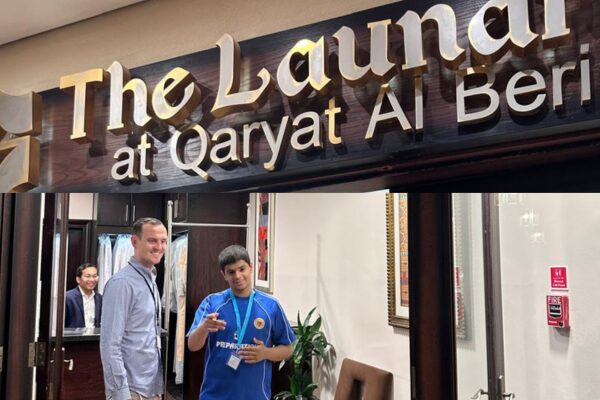On Monday, April 7, the Mohammed Bin Rashid Center for Special Education operated by The New England Center for Children (MRC-NECC) proudly signed a Memorandum of Understanding (MoU) with Shangri-La Qaryat Al Beri Hotel in Abu Dhabi. This partnership marks a powerful step forward in MRC-NECC’s mission to support individuals of determination through inclusive education, vocational training, and community engagement.
“This new vocational collaboration is an inspiring achievement and rooted in years of meaningful connection,” shared Pam Olsen, PhD, MSEd, BCBA, executive director of MRC-NECC. “From student-led cooking classes and inclusive activity days to vibrant family events, the Shangri-La team has consistently championed community inclusion and celebrated student strengths.”
Dr. Olsen shared that together with Shangri-La, they have worked to create real-world vocational opportunities for MRC-NECC students within the hospitality industry. “These are spaces where students can develop job skills, build confidence, and prepare for independent adulthood,” she added. “With the signing of this MoU, our shared vision for inclusive employment becomes even more tangible. It’s great to see so many opportunities opening up across the country.”
This past week, MRC-NECC’s first student, Zayed, began his job sampling experience in the hotel’s laundry department. Over the last few years, Zayed has consistently demonstrated interest and aptitude in job sampling activities conducted at the Center and in the Vocational Department, which made him an ideal candidate for this initial experience.
Supported by his job coach from MRC-NECC, Zayed enjoyed folding two different sized towels and engaged in hanging bathrobes, tasks which both challenge him and encourage him to grow in his skillset.
Looking ahead, MRC-NECC hopes this initiative will evolve into structured internship opportunities and are optimistic that this initiative can serve as a strong foundation for broader vocational engagement in the future.
“This partnership is not just about access,” said Dr. Olsen. “It’s about empowerment, belonging, and building pathways toward sustainable futures.”

